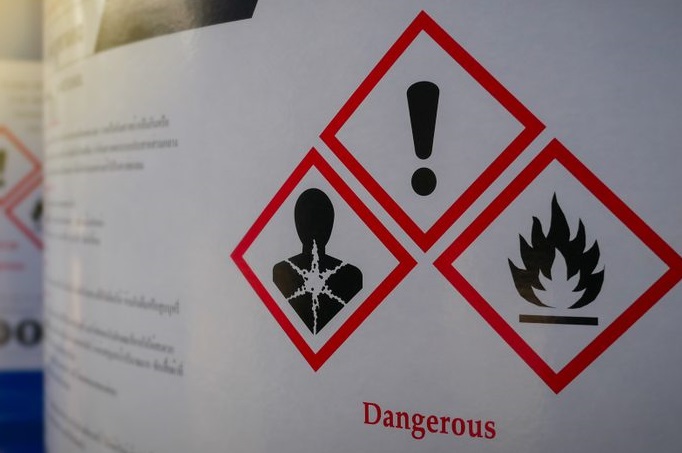11 Dec 2024

Tired Earth
By The Editorial Board

The EU’s REACH chemicals law overhaul aims to reduce toxic pollution and improve safety by banning the most harmful substances in groups rather than individually to speed up the process.
It is expected to be proposed by the end of the year, having been significantly delayed, but there are concerns about how ambitious the legislation will be.
One of the questions that has overshadowed the process is how to define what ‘essential’ uses would qualify for exemptions from the foreseen bans. The current thinking is only to allow exemptions for uses that meet two criteria: contributing to something necessary for society and having no economically viable alternative.
At stake could be the approval or banning of thousands of chemical substances that are sometimes critical in manufacturing everything from furniture to electronic devices and aircrafts.
“The essential use concept consists of two criteria. One is political. And that’s the question, is use critical for society, or is it necessary for health and safety? So this brings in an element that we didn’t have before,” said Otto Linher, a senior expert at the European Commission’s REACH unit.
“The second criterion is the absence of alternatives. That’s something we’ve been working on in REACH for a long time,” he said at a EURACTIV event last week.
But the essential use concept has proven controversial. According to an unpublished Commission impact assessment, seen by EURACTIV, “stakeholders were polarised whether the essential use concept would lead to environmental, health, and socio-economic benefits, as well as economic benefits for industry”.
While “academia, consumer organisations, citizens, environmental organisations, public authorities, and NGOs predicted benefits on average”, “industry representatives, trade unions, and other stakeholders tended to disagree or strongly disagree”.
The concept itself is not new. A similar one was used under the Montreal Protocol, which has phased out 98% of ozone-depleting substances based on 1990 levels.
Alongside this, the 2020 EU Chemicals Strategy committed to “define criteria for essential uses to ensure that the most harmful chemicals are only allowed if their use is necessary for health, safety or is critical for the functioning of society and if there are no alternatives that are acceptable from the standpoint of environment and health”.
What is essential?
Campaign groups call for a strict approach to essential uses, allowing harmful chemicals only when they are truly critical for society and there are no secure alternatives.
“The essential use is not about the importance or how convenient specific chemical products are, but about when the society can accept various adverse chemicals in everyday products,” said Tatiana Santos, head of chemicals policy at the European Environmental Bureau, a green campaign group.
Business groups, however, are more nervous.
“When the rubber meets the road, and you look how is it going to impact your business, then you see a lot of hurdles that still need to be clarified,” said Martina Bianchini, the president of the International Fragrance Association.
Meanwhile, Marko Susnik, an advisor on chemicals policy at the Austrian Economic Chamber, pointed to the complexity of defining what is essential across 27 countries with different cultures and economies.
“In general, I think that essentiality is a very subjective thing,” Susnik said, adding it would be particularly complex for small and medium businesses to implement.
The cultural aspect can cause tensions. For instance, when the Commission tried to label rose oil as having potential health risks, Bulgaria’s Prime Minister Nikolay Denkov pushed back, saying the Commission had taken the wrong approach.
Cultural aspects are also a part of essentiality, and discussions around this are still ongoing, said Linher.
Speeding up exemptions
According to Linher, the essential use concept would allow exceptions to be quick for clear cases where they are needed and help support decisions in less clear ones.
Explaining what could be essential, he said a clear example would be PFAs used in hydrogen production. The European Commission is currently looking at phasing out this family of 10,000 plus substances, known as ‘forever chemicals’ because of how long they last in the environment due to health concerns.
“For ski wax or frying pans, I think it is clear that those uses are non-essential because it’s neither something that is really critical for society that is at stake, and we have the necessary alternatives,” Linher added.
There are also less clear cases. For instance, PFAs uses in semiconductors, where there are alternatives, but these may not be able to replace everything immediately.
“That is going to be the tricky area where essential uses can help, but we should not expect it to be the panacea that, from one day to the other, allows everything to be clear,” he explained.
How to replace harmful substances
Another big question the EU seeks to answer is how to replace harmful substances.
“Any alternatives must be technically and economically feasible,” said Linher.
However, this does not necessarily mean the alternative must have the same performance level. This partly depends on how critical it is to society.
“If there are things that are not really very highly necessary for society, we also must accept that there may be a loss of performance of the alternative,” said Linher, giving the example of a slight decrease in the anti-sticking of frying pans.
There is also an economic cost when it comes to alternatives, as industry will likely be using the cheapest option already. Linher warned that “we must expect a certain level of price increase”, which could lead to job losses, but that moving towards sustainability also creates a business opportunity.
Source : euractiv.com
Comment